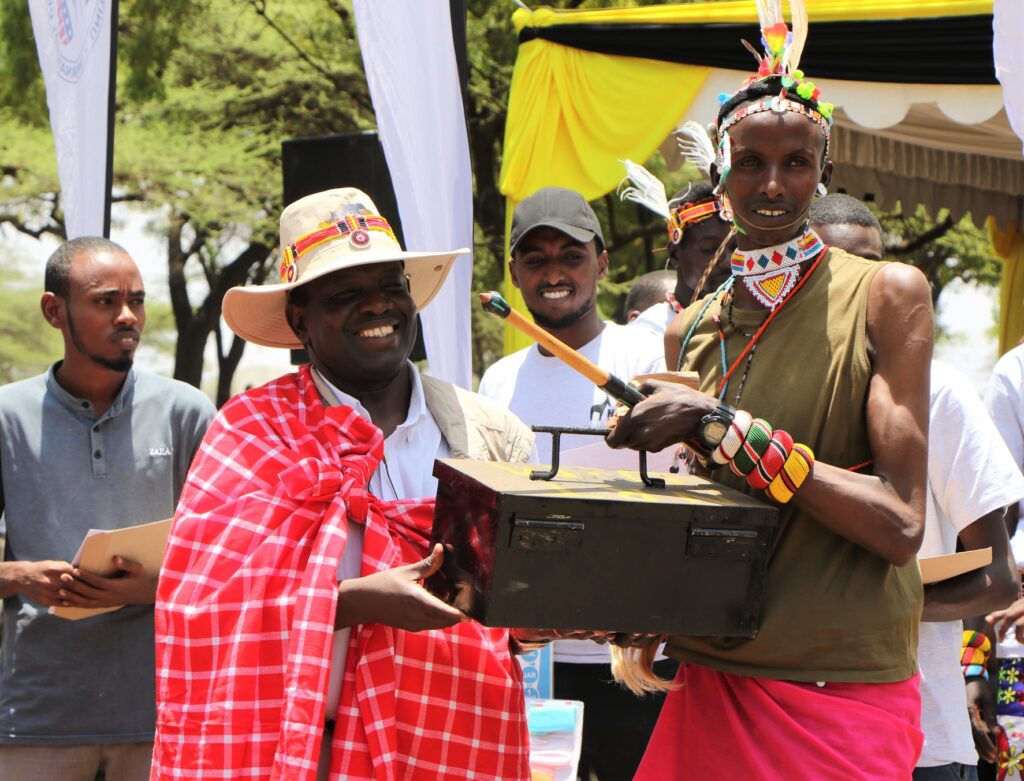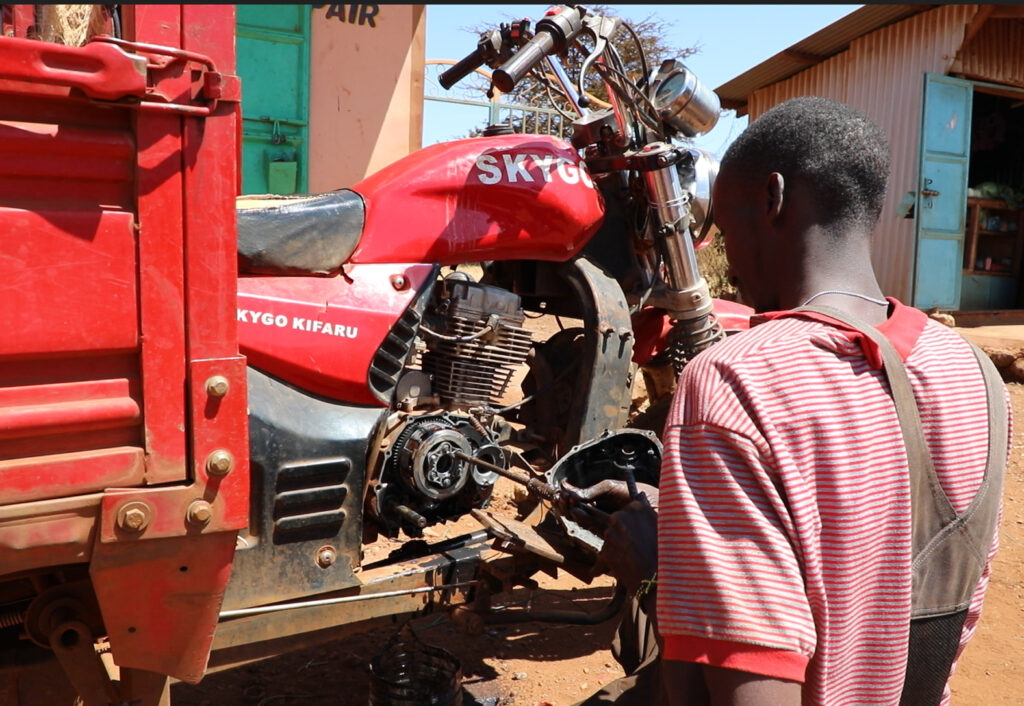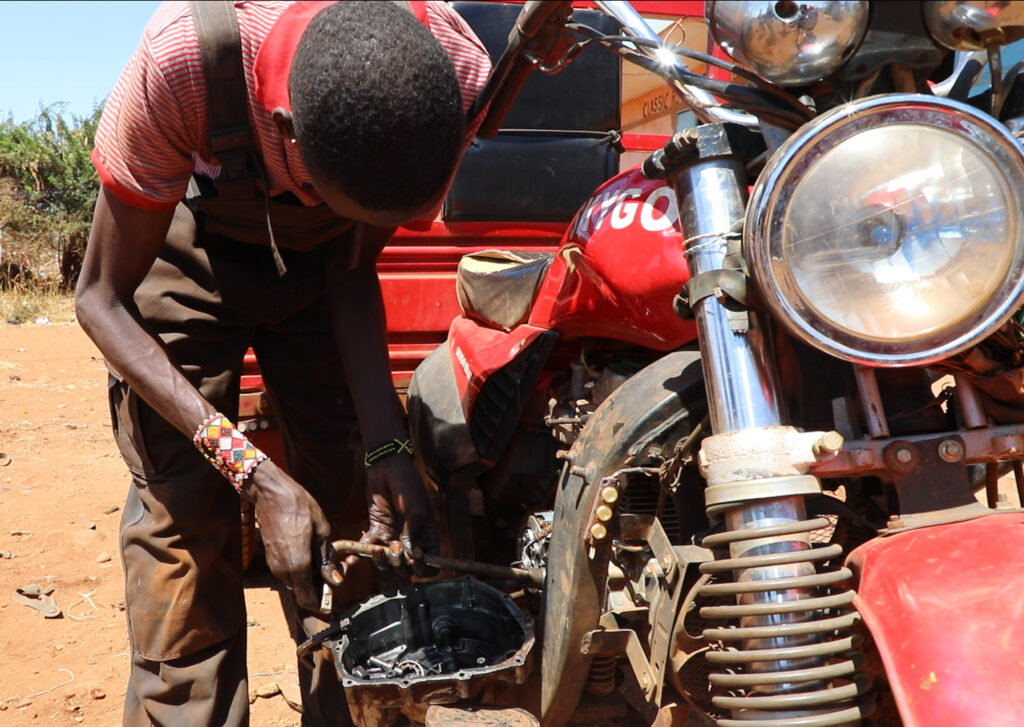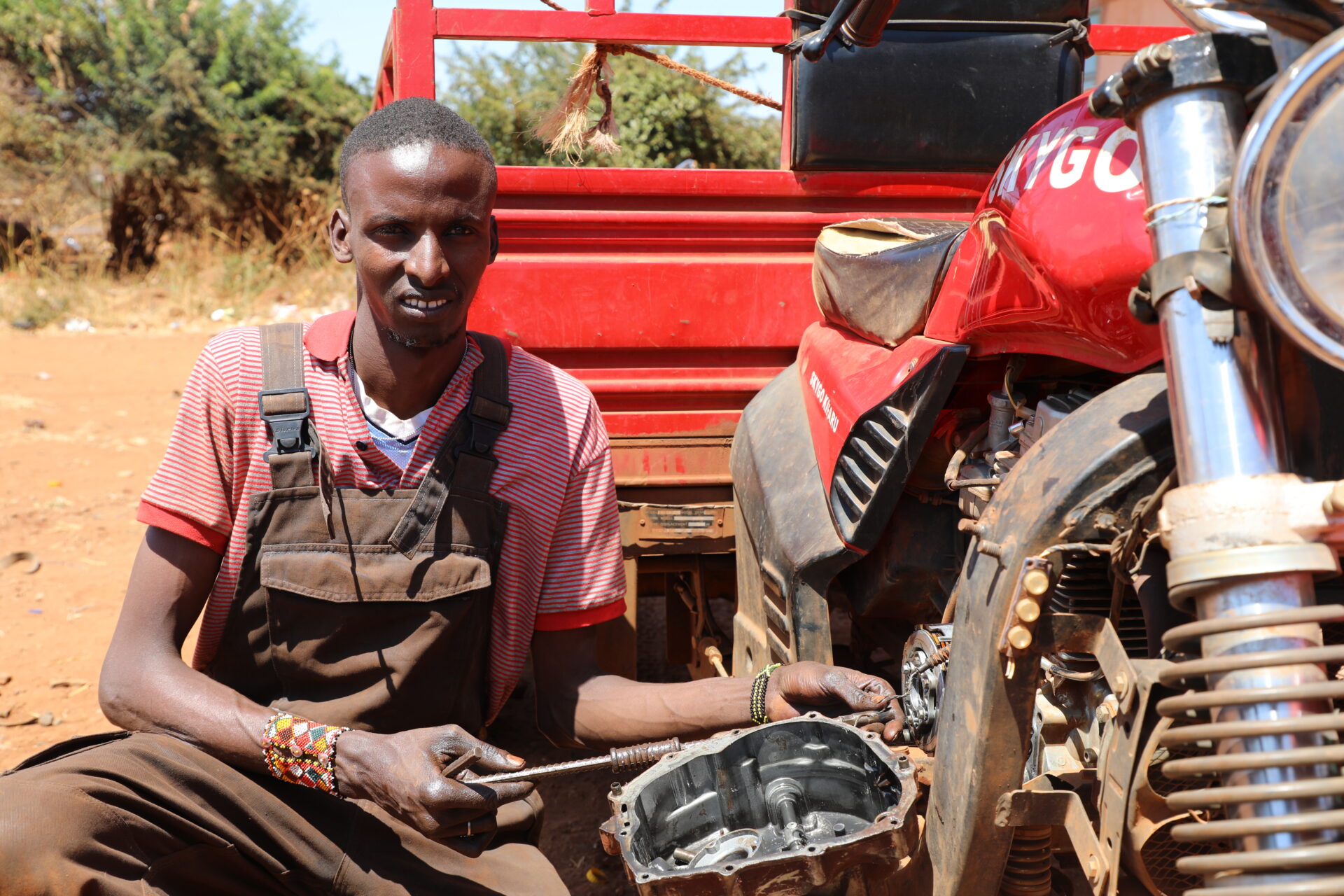Early last year, NRT Trading Ujuzi Manyattani held a graduation ceremony that marked a significant milestone for 337 women and youth from NRT member Community Conservancies of Nakuprat-Gotu, Nasuulu, Ltungai, Shurr, Jaldesa, and Songa in Isiolo, Samburu, and Marsabit Counties. These graduates had completed various vocational courses with the support of the USAID Local Works program, the Royal Danish Embassy, the Embassy of Sweden through the IMARA project, IUCN Save our Species co-funded by the European Union, The Nature Conservancy, and Northern Rangelands Trust.
Among the graduates was John Galwersi, a young man from Karare, Songa Conservancy, Marsabit County. Before joining Ujuzi Manyattani, John worked as a boda-boda operator, braving the elements to sustain himself and his family. However, long hours on the motorcycle began taking a toll on his health, leading him to seek alternatives. Fortunately, through the Songa Community Conservancy management, he learned about a vocational training program targeting women and youth from indigenous communities with marketable skills to diversify livelihoods and encourage entrepreneurship.

John enrolled in the motorcycle repair and maintenance course, envisioning it as an educational pursuit and the foundation for a future business. However, after completing his training and graduating, he struggled to secure a job but remained persistent. With the start-up toolkits he received during graduation, he put them to work and undertook a couple of attachment opportunities with skilled mechanics to increase his grip in repairing motorcycles. He occasionally searched for employment opportunities and set aside some modest earnings.
To fill a crucial gap in his community’s need for motorcycle repair services, John used his savings of KES 5,000 to establish an auto spares and motorcycle repair shop. He stocked it with essential items for motorbikes, such as engine oil, side mirrors, brake pads, and tubes. John would conduct tests on different motorcycle models and repair various motorcycle systems, including engines, transmissions, and brakes.
John’s journey didn’t stop with technical expertise. Biashara Mashinani provided him with tailored entrepreneurial and financial literacy training in business planning, analysis, risk management, branding, customer service, and record keeping. This comprehensive training paved the way for John to run a successful business and expand his services.

From his business dubbed “Johntes Auto Spares and Motorcycle Repair, John earns a daily income of between KES 1,000 and 5,000 and has also created job opportunities for other young individuals in his community. His mobile services also cater to customers who face challenges traveling to Karare town, contributing positively to the community’s convenience.
John has encountered some difficulties in his business journey. He has lost quite a lot of money to customers who promised to pay back the money after repair but disappeared without fulfilling their promise, resulting in significant losses. Additionally, since he often orders materials from other towns, they sometimes arrive damaged, forcing him to order new ones and incur unexpected expenses. These setbacks, however, have not deterred him.

From owning a box of tools to having a fully stocked auto spares shop, John’s decision to be self-employed was the best he could have made. He now runs his business smoothly while growing his skill set and knowledge, monitoring all the profits and losses, choosing what to outsource to others, and being his own boss!
John advises other young women and men to acquire skills and enroll in programs like Ujuzi Manyattani, which offers vocational skills to address market gaps and boost and diversify the livelihoods of women and youth without disrupting their normal ways of life.

John is among the 88% of Ujuzi Manyattani graduates who have embarked on self-employment through setting up their businesses, hence earning an income to secure their livelihoods.

